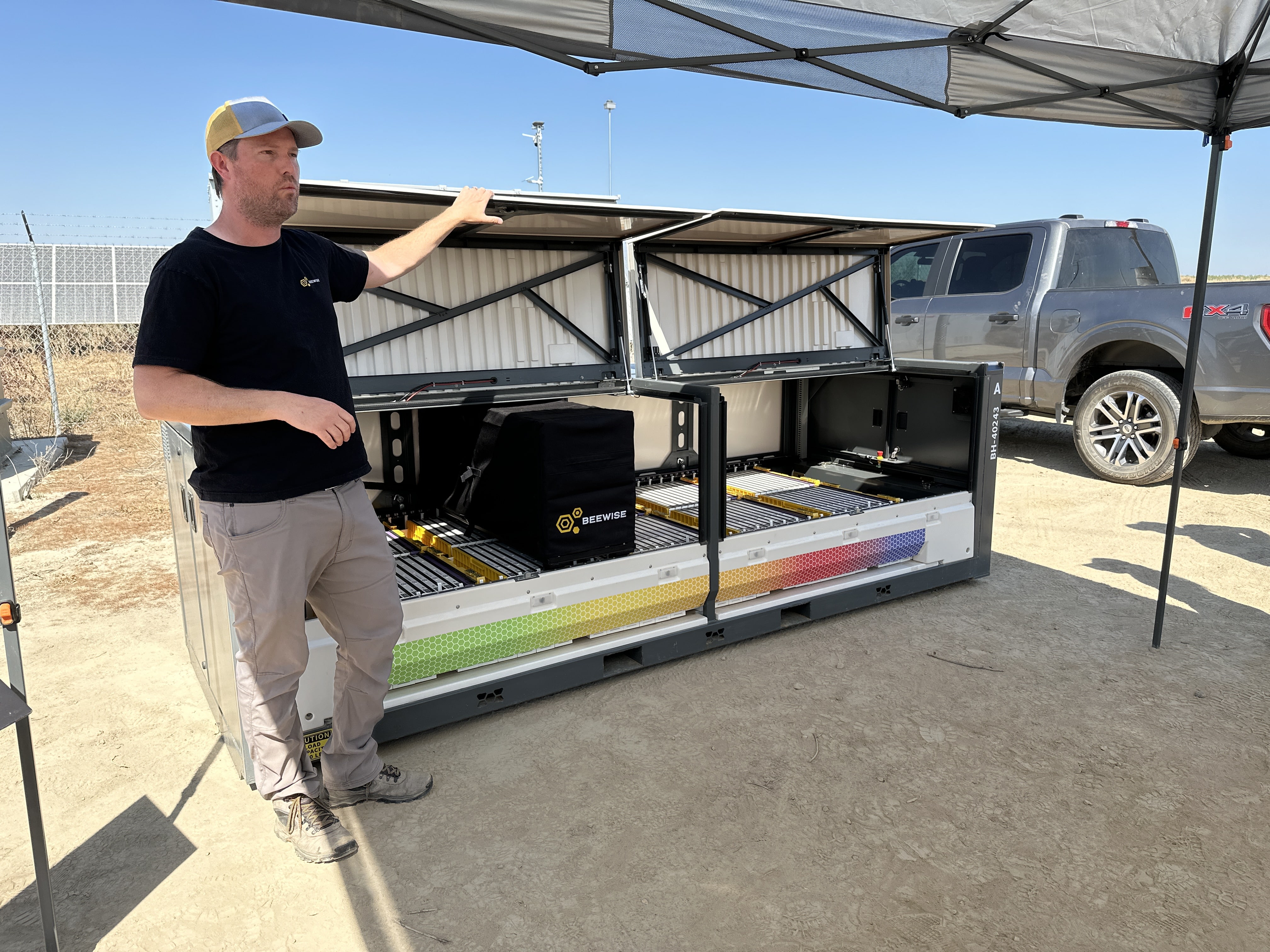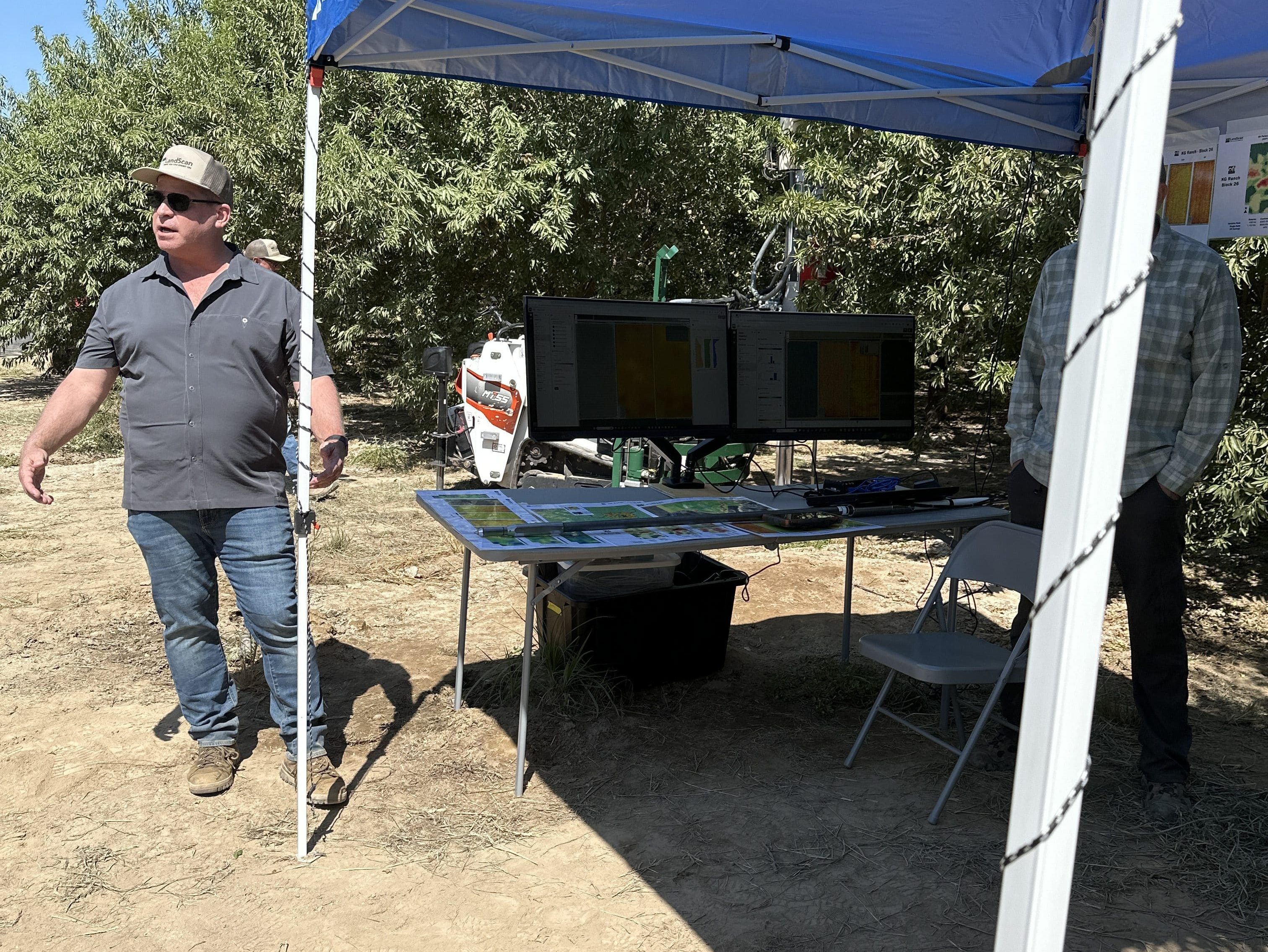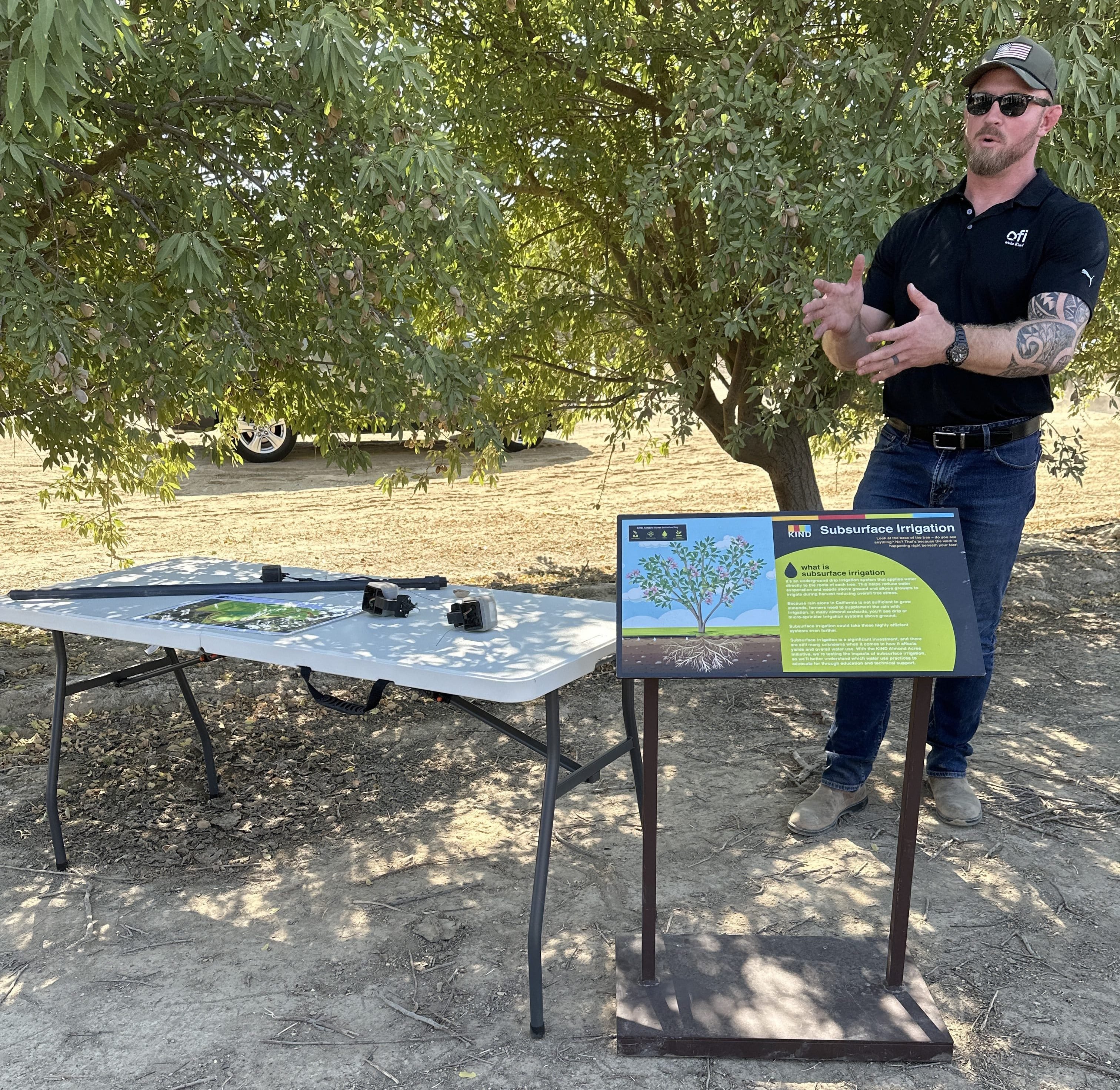Almond farming, particularly in California, is undergoing a transformation as companies like KIND Snacks push for a more sustainable approach through regenerative agriculture. As a leading almond buyer, KIND has committed to sourcing 100% of its almonds from regenerative farms by 2030 through its KIND Almond Acres Initiative. This commitment is bolstered by partnerships with AgTech companies like BeeWise and LandScan, as well as collaborations with academic institutions such as UC Davis, to integrate advanced technology and research into sustainable almond production.
Key Takeaways
- KIND’s Almond Acres Initiative aims to source 100% of its almonds from regenerative agriculture practices on a mass balance basis by 2030.
- The initiative includes key collaborations with AgTech companies like BeeWise for pollinator health and LandScan for precision agriculture.
- Subsurface irrigation techniques and cover crops are central to the regenerative practices being trialed.
- UC Davis and CWAC contribute to research on water resilience, pollinator health, and soil improvement.
Insights from the Field: Leveraging Regenerative Agriculture with Technology
During a field trip to KIND’s Almond Acres project, presented by ofi’s agronomist, Zac Ellis, several key advancements and challenges related to almond farming were observed. One of the most significant breakthroughs involves the use of subsurface irrigation, a system where water is delivered 8-10 inches beneath the soil. Ellis emphasized, “By using subsurface irrigation, we’ve seen fewer weed infestations and diseases, as it prevents surface-level humidity.” KIND has been able to reduce water consumption by as much as 30% without impacting yields, although the system requires a significant upfront investment, costing twice as much as traditional irrigation.
Challenges such as damage caused by pocket gophers highlight the importance of adapting technology to local environmental constraints. Additionally, the system prevents visual assessment of potential issues, which is why KIND is also employing dendrometers to monitor tree health. These tools detect how the trees swell, helping farmers manage irrigation needs more efficiently.
The pollination process, a critical aspect of almond farming, is also seeing technological integration through KIND’s partnership with BeeWise. According to Eliyah Radzyner, VP of Revenue at BeeWise, “Our remote beekeeping technology helps protect bees by measuring everything inside a beehive, enabling faster responses to environmental challenges.” BeeWise’s technology allows early detection of problems within beehives, addressing three key challenges in commercial beekeeping—distance, time, and expertise—by enabling swift intervention.

Regenerative Agriculture: Scaling Practices and Benefits for Almond Orchards
The KIND Almond Acres Initiative is trialing a range of regenerative agriculture practices, from cover crops to the use of compost and biochar. These methods help improve soil health and support bee populations, creating a more resilient farming ecosystem. Zac Ellis from OFI elaborated, “Cover crops not only improve soil health but also provide a diverse food source for bees, which is critical for their productivity.” The dual benefit of soil enrichment and pollinator support underlines the holistic approach of regenerative agriculture.
Compost and biochar, made from almond shells, are also being tested to improve soil moisture retention and enhance soil health in California’s hot climate. Mixing compost with biochar allows farmers to capitalize on both materials’ strengths, with biochar providing long-term carbon storage and compost offering immediate soil nutrient benefits.
AgTech Partnerships: Enhancing Precision and Efficiency
The KIND Almond Acres Initiative also integrates advanced technologies from LandScan, a precision agriculture company using satellite imagery, drone technology, and hyperspatial data to monitor and predict soil health. Dan Rooney, PhD, CEO of LandScan, emphasized, “Healthy soil is a function of genetics, management, and environment. Our technology helps farmers make informed decisions by providing actionable data across the entire field.”

LandScan’s technology collects detailed soil data that helps farmers adjust their practices in real-time. By using hyperspatial imagery and advanced mapping techniques, LandScan supports KIND’s efforts to implement regenerative agriculture practices across different environments, ensuring a more precise approach to water management, soil health, and crop production.
The Role of Academic Research: UC Davis and CWAC
KIND’s partnership with UC Davis and the California Water Action Collaborative (CWAC) is central to the success of the Almond Acres Initiative. UC Davis’s Williams Lab is conducting in-depth research on pollinator health and the impact of regenerative practices on almond yields. “We’re leveraging insights from UC Davis to inform our growers about the importance of maintaining healthy pollinator populations,” said Zac Ellis. The lab’s work with cover crops has shown that these practices not only benefit the bees but also improve soil health, water infiltration, and crop performance.
One of the key challenges UC Davis is addressing is the placement of pollinator habitats, which has historically been done on a piecemeal basis by individual growers. UC Davis is developing a spatially explicit framework to identify the best locations for pollinator habitats, such as hedgerows and orchard-based cover crops. “We’re building a framework to prioritize habitat placement for pollinators, which will benefit not just the individual grower but the entire farming community,” UC Davis researchers stated.
The initiative also works with CWAC to explore how regenerative practices can improve water resilience in California, a state increasingly impacted by drought. CWAC’s collaboration allows KIND to align its sustainability goals with broader state-level efforts to conserve water and improve agricultural practices.
Challenges and Future Prospects
One of the most pressing challenges highlighted during the field trip is the use of pesticides and their impact on pollinators. Despite efforts to reduce pesticide usage, bees are still exposed to harmful chemicals. UC Davis is currently studying pesticide residue in bee-collected pollen to identify the source of contamination and develop strategies to mitigate it. “Our research shows that bees do better when wildflowers are present, even in areas with pesticide exposure,” UC Davis emphasized, underlining the importance of creating diverse habitats that can support pollinators while reducing the impact of pesticides.
Additionally, KIND is exploring new harvesting methods to improve air quality during the harvest season. Traditionally, almond harvesting involves the use of shakers and sweepers, which create significant dust. KIND is trialing a new harvesting system that collects almonds directly and dries them in a separate facility, reducing dust and improving air quality in the process.
Conclusion: Toward a More Sustainable Almond Industry
The KIND Almond Acres Initiative is a testament to how regenerative agriculture, when combined with cutting-edge technology and academic research, can lead to more sustainable and resilient almond farming practices. Through partnerships with AgTech companies like BeeWise and LandScan, as well as collaborations with UC Davis and CWAC, KIND is pioneering a path forward for the almond industry, addressing key challenges such as water conservation, pollinator health, and soil sustainability.
As the initiative continues to evolve, the hope is that the lessons learned from almonds can be applied to other crops in KIND’s supply chain, creating a more sustainable future for all of the company’s products. By investing in regenerative agriculture and integrating technology into farming practices, KIND is setting a new standard for sustainability in the food industry, one that prioritizes both environmental health and long-term agricultural productivity.
Images were all taken by iGrow News during a field trip organized by KIND Healthy Snacks.



1 Comment